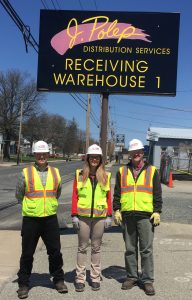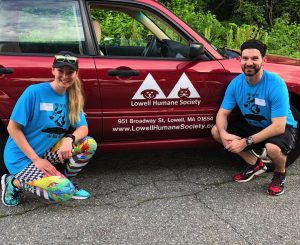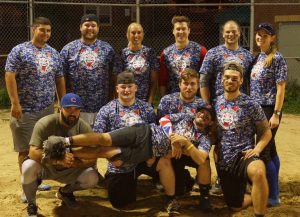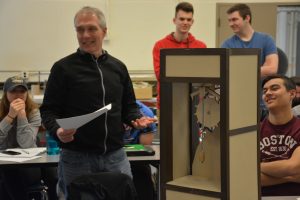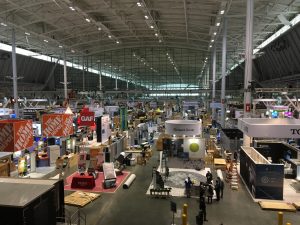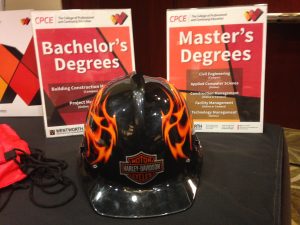 Earning a college degree is a great way to advance your career. According to the Georgetown Center for Education and Work, in most cases, more education results in more opportunities and higher pay.[1]
Earning a college degree is a great way to advance your career. According to the Georgetown Center for Education and Work, in most cases, more education results in more opportunities and higher pay.[1]
Often times, however, the time and expense of going back to school is great and can appear to outweigh the advantages. Degree programs take several years, and thousands of dollars to complete. Still, it is possible to gain the skills and knowledge you need to advance in your career without earning a degree and, more importantly, without falling behind on your other responsibilities.
Following are five things that you can do to get ahead in your career in less time and for less money than a conventional degree program.
1.Build Your Skills
There are a number of jobs that require the mastery and practical application of essential skills, jobs such as electrician, welder and machine tooling. Acquiring new skills, or improving ones you already have can help you to advance in your current job, or open the door to a whole new career.
As you think about your next steps, conduct an inventory of the skills you currently have and what is needed for you to take the next step.
- Is there a skill you have that you would like to develop further?
- Is there a particular technology that you need be trained in?
- Is there a skill that you can develop to fill a unique niche in the market?
- Are there any licensing exams you can take that will advance you to the next step in your career?
A workforce training and development program can provide you with the skills you need and prepare you to advance you to the next level in your career.
2. Show What You Know
There is a lot of talk these days about credentials. A credential let’s an employer know what knowledge and skills you have to offer. A bachelor’s or master’s degree is one way to earn credentials. But you can also earn credentials by completing a certificate program. And, unlike a bachelor’s or master’s degree, which can take many years, most certificates can be completed in less than one year.
Certificates are one of the fastest growing post-secondary credentials in today’s job market. When looking for a certificate program, look for one where the skills gained align with the requirements of the job you seek. Also, look for programs led by knowledgeable faculty, who are experts in their field. Their expertise will not only give you the knowledge you need, but will ensure that your program meets the latest industry standards. Finally, look for certificate programs that give you the skills you need right away, as well as the skills you need for long-term advancement, skills such as communication, problem-solving and leadership.
Live and Learn
Adult learners are the fastest growing population on many college campuses. A number of colleges and universities have adjusted their program offerings to accommodate the needs and busy schedules of adult learners, many of whom are balancing work and family life along with school.
Convenient evening and weekend classes are just one example of the accommodations being made so that adult learners don’t need to take time off from work to return to school. Online and satellite locations make it possible for adult learners to learn where they live and work, which makes it easier to attend classes. And, finally, the creation of student cohorts, allows even online students to be part of a learning community that offers support and encouragement throughout.
Get Help
Perhaps one of the biggest roadblocks to returning to school is the high cost of tuition. Degree programs, even part-time, are costly. Workforce training and certificate programs, however, provide a way to earn the skills and credentials you need, at a lower cost.
When looking for a workforce training or certificate program, look for one that offers a payment plan. Some plans allow you to break down the cost of tuition into smaller, more manageable payments. Also, look for scholarship opportunities. While not as plentiful as for full-time degree, programs, there are a handful of scholarships that provide assistance to students in short-term training and certificate programs. Finally, many employers and organizations such as the VA and unions, provide tuition reimbursement, particularly if the skills and knowledge acquired will help you to advance in your career. An Admissions Counselor in the program to which you are applying should be able to help you locate sources of funding.
Make it Count
Many workforce training and certificate programs are not credit bearing. This means that while you might earn continuing education units (CEU’s), you will not earn credits that can be applied to a degree should you decide to pursue one down the road. With the current push towards preparing students not only for the immediate needs of the job market, but for long-term changes and fluctuations, many colleges and universities, now offer what they call “stackable” certificates. These are programs that, while they are valuable in and of themselves, can be counted as credits towards a bachelor’s degree down the road. A stackable, or credit-bearing certificate, will provide you with the skills and knowledge you need to enhance your career now, along with the credits you want to advance your education in the future.
Conclusion
To get ahead in today’s job market, you don’t need to make the long-term commitment of time and money to a degree program. Workforce training and certificate programs, many of which are offered at convenient times and locations, can provide you with the skills and knowledge you need to get ahead, in less time and at a fraction of the cost of a degree. And, the right workforce training or certificate program, will not only help you take the next step in your career, it will open the door to a life of learning.
[1] Carnavale, Anthony, and Ben Cheah. “Five Rules of the College and Career Game.” Georgetown University, Center of Education and the Workforce, 2018.





